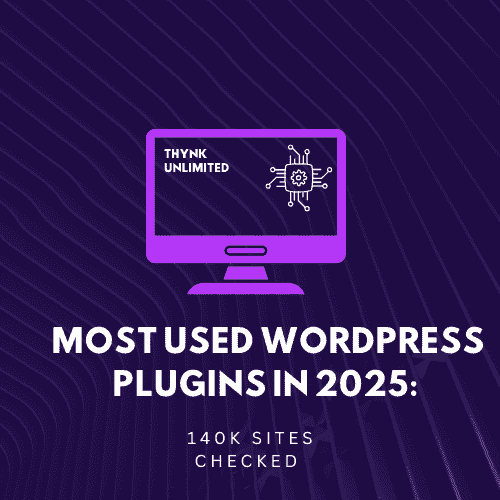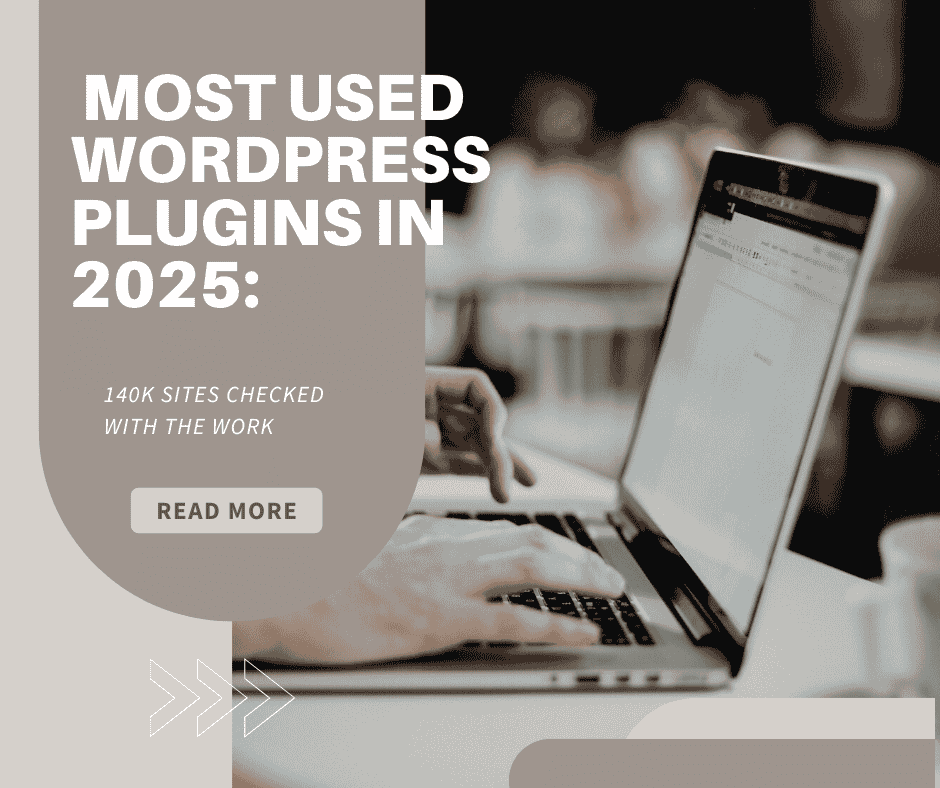When running a WordPress website, choosing the right plugins can be tough. With thousands out there, it’s hard to know what actually works best. So, a recent scan of over 140,000 WordPress websites showed which plugins are used most often. Here, we break down the top plugins and explain why so many users trust them.
If you pick the wrong plugin, it can slow down your site. Worse, it may cause security problems or conflict with other tools. So, choosing smartly helps with speed, safety, and overall site quality.
What This Scan Included
The study looked at both small blogs and large business sites. It scanned active installs, update history, and performance impacts.
Top WordPress Plugins Found in 140K Sites
| Plugin Name | Purpose | Reason for Popularity |
| Elementor | Page builder | Drag-and-drop ease, design control |
| WooCommerce | E-commerce | Complete store features |
| Wordfence | Security | Strong protection, user-friendly |
| UpdraftPlus | Backup tool | Reliable backups, restore options |
| Akismet | Spam protection | Stops comment spam effectively |
| MonsterInsights | Google Analytics connection | Easy tracking dashboard inside WordPress |
| Redirection | URL redirect tool | Helps fix broken links |
| All in One SEO | SEO alternative to Yoast | Complete features, beginner-friendly |
| Broken Link Checker | Finds bad links | Keeps site clean and updated |
| WPForms | Contact and survey forms | Easy builder for all types of forms |
What Makes These Plugins So Useful
Each of these tools solves a core WordPress need. Some help with SEO, others improve speed, or boost security. Also, most of these plugins are easy to install and require no code. That’s why even beginners use them with confidence.
How to Pick the Right Plugin
Even though the plugins above are popular, not all are right for every site. So, before you install any plugin:
- Check if it’s updated often
- Read user reviews
- Test it on a staging site
- Look for conflicts with your theme
These steps can help prevent problems down the line.

Common Plugin Categories
To make plugin choice simpler, it helps to know what each category means.
- SEO Plugins: Help boost visibility in Google
- Form Plugins: Let users contact you or give feedback
- Speed Tools: Make your site load faster
- Backup Tools: Save and restore your content
- Security Plugins: Protect from hacks and spam
- Design Builders: Make your pages look better
Signs of a Good Plugin
- Over 100K active installs
- High ratings (4.5 stars or more)
- Good customer support
These traits show that the developers are active and care about users.
What to Avoid When Choosing Plugins
While popular plugins are mostly safe, some can harm your site. So, avoid plugins that:
- Haven’t been updated in a year
- Are poorly rated by users
- Conflict with other tools you use
- Add hidden ads or tracking scripts
Best Free vs Paid Plugins
Some plugins come in both free and pro versions. The free version usually gives basic features. Meanwhile, paid versions add tools like automation, support, and premium templates. So, if your site earns income, a paid plugin may be worth it.
How Plugin Use Affects SEO
If a plugin slows your page, it may hurt SEO. Google likes fast, secure, and mobile-friendly sites. So, always test your plugins after installing.
Keeping Plugins Updated
Old plugins can open your site to risk. So, update them regularly. Set a reminder to check every week. so, backup your site before updates. This prevents crashes or lost data.
Tools to Help You Manage Plugins
To keep your plugin list clean and useful, use tools like:
- Plugin Organizer – Controls load order
- MainWP – Manages plugins across multiple sites
These tools save time and improve stability.
Final Thoughts: Choose Plugins That Boost Performance and Safety
This scan of 140,000 sites showed that trusted, updated plugins get better results. So, always test before using. Keep the number low and focused. Use plugins that improve speed, SEO, design, and safety. Also, update regularly and check reviews before you install anything new. These small steps can protect your site and grow your traffic.Because your site’s success depends on how well it performs, plugins must work for you, not against you. Choose wisely.
Using more than 20 plugins can slow down your site, especially if they do similar things. So, always check your site speed after adding new ones.
Are free plugins safe to use?
But you must check their update history and reviews. Also, avoid downloading plugins from unknown sources. That’s where malware often hides.
What if a plugin breaks my site?
First, deactivate it using recovery mode or FTP. Then, clear your site cache and check for updates.
If needed, restore your site from a backup. That’s why regular backups are key before plugin installs or updates.
